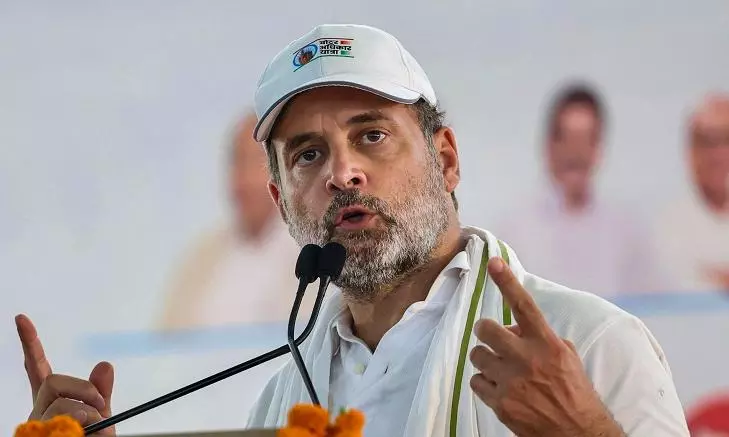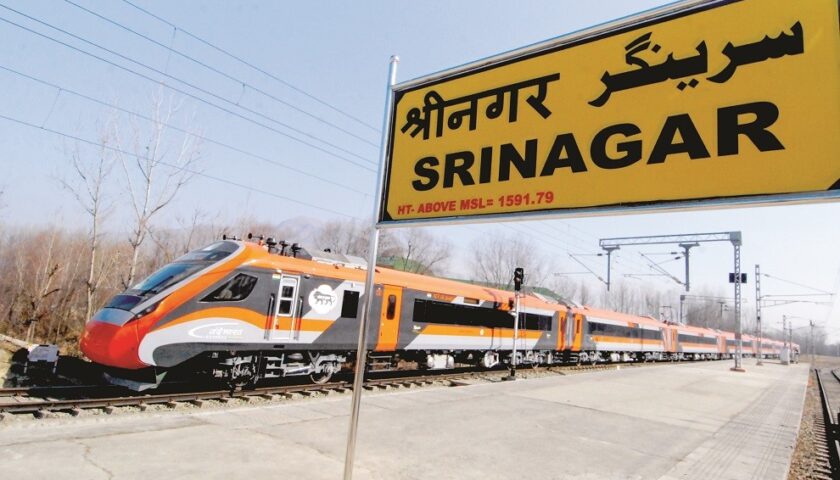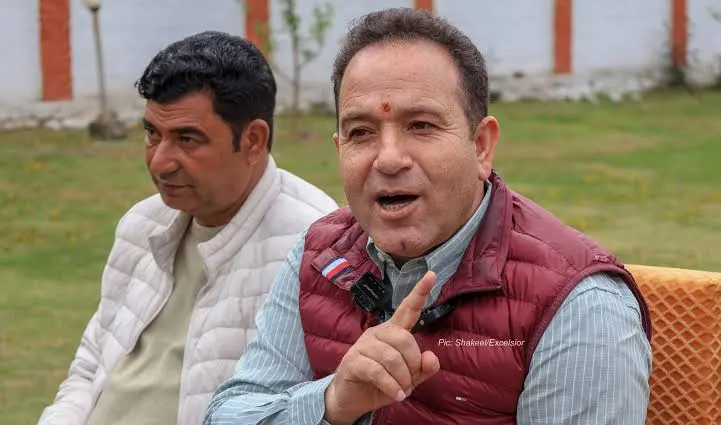Rahul Gandhi Slams PM Modi Over Leh Firing: Ladakh Betrayed, Kargil Hero Killed, Justice Demanded
By: Javid Amin | 30 September 2025
A Tragedy that Stirred the Nation
The political spotlight has turned sharply on Ladakh after police firing during a protest in Leh on September 24 left four people dead and over 80 injured. Among the victims was Tsewang Tharchin, a decorated Kargil war veteran who had also served in the treacherous Siachen Glacier.
His death has become a symbol of Ladakh’s growing alienation. From the icy heights of Kargil to the streets of Leh, the narrative of betrayal, broken promises, and denied rights is resonating deeply.
Congress leader Rahul Gandhi, speaking from his South America tour, accused Prime Minister Narendra Modi of betraying the very people who defended India’s borders, and demanded an impartial judicial probe into the incident.
The Incident: Police Firing in Leh
On September 24, 2025, thousands of protesters gathered in Leh to demand:
-
Full statehood for Ladakh
-
Constitutional safeguards under the Sixth Schedule to protect land, jobs, and ecological resources
The protest turned violent, with reports of police vehicles being torched and clashes outside government buildings. Security forces responded with live ammunition, resulting in the deaths of four civilians.
Among them was Tharchin, whose sacrifice in uniform had once been celebrated by the nation. Now, his death at the hands of the state has triggered outrage across political lines.
Rahul Gandhi’s Sharp Critique
From abroad, Rahul Gandhi released a statement along with a video of Tharchin’s grieving father. His words cut deep:
“Father in the army, son in the army—patriotism runs in their blood. Yet the BJP government shot and killed this brave son of the nation, simply because he stood up for Ladakh and his rights.”
Gandhi accused Prime Minister Modi of “betraying Ladakhis after using them politically”, and urged an impartial judicial inquiry to ensure accountability.
He further demanded the “harshest punishment” for those responsible, framing the violence as part of a larger “politics of violence and fear.”
Congress Joins the Attack
Rahul Gandhi’s remarks were amplified by senior Congress leaders:
-
Mallikarjun Kharge (Congress President): Called the killings “an assault on democracy and patriotism.”
-
Jairam Ramesh (General Secretary, Communications): Accused the Modi government of “abandoning Ladakh after exploiting its people for electoral gains.”
By centering Tharchin’s story, Congress sought to underline the symbolic betrayal: a soldier who defended India was denied dignity in his own homeland.
The Bigger Political Context: Ladakh’s Growing Unrest
Ladakh was carved out as a separate Union Territory in August 2019 when Article 370 was abrogated. Initially celebrated in Leh, the move soon led to deepening frustrations:
-
No statehood: Ladakh remains without an elected assembly.
-
Sixth Schedule denied: Despite repeated assurances, Ladakhis have not been granted tribal safeguards to protect their unique identity.
-
Land & jobs anxiety: Locals fear being sidelined by outside settlers and corporations.
-
Environmental concerns: Fragile ecosystems face threats from unregulated development and military activity.
The Apex Body Leh (ABL) and Kargil Democratic Alliance (KDA), once united in dialogue with Delhi, have now distanced themselves, accusing the Centre of stalling tactics.
The police firing has only deepened the perception that Ladakh is being governed by force, not consensus.
Why Tharchin’s Death Resonates
Unlike other protest casualties, Tsewang Tharchin’s identity carries national resonance:
-
Kargil War veteran: Served during the 1999 conflict, defending Indian territory against Pakistani intrusions.
-
Siachen posting: Braved the world’s highest battlefield, a symbol of sacrifice and endurance.
-
Now a protester: Died demanding constitutional dignity for his homeland.
For Congress, his story is a moral weapon against the BJP. For Ladakhis, it is proof that their sacrifices for the nation are being ignored in governance.
The BJP’s Dilemma
The Modi government has so far defended the police action, with Home Ministry officials blaming “external influences and provocative leaders” for engineering the violence. Climate activist Sonam Wangchuk, already under detention, has been accused of inciting unrest.
But the BJP faces a difficult narrative:
-
On one hand, it celebrates the military and soldiers like Tharchin in nationalistic rhetoric.
-
On the other, it must explain why a war veteran was killed while demanding his rights as a citizen.
This contradiction has provided fertile ground for opposition attacks.
The Demand for Justice
Civil society groups, Kashmiri leaders, and rights organizations have joined the call for:
-
Judicial inquiry by a retired Supreme Court or High Court judge
-
Accountability for police officers who authorized firing
-
Compensation and public acknowledgment of victims’ sacrifices
-
Dialogue-based approach to resolve Ladakh’s demands
The demand reflects not just grief over deaths but also anger over what is seen as systematic silencing of democratic voices.
What Lies Ahead for Ladakh
The Leh firing is not an isolated tragedy—it is a flashpoint in a larger struggle for dignity. Possible scenarios:
-
Escalation of protests: Curfews and arrests may only fuel resentment.
-
Judicial probe: If granted, it could restore some public trust, though Ladakhis remain skeptical.
-
Political reset: Centre may be forced to reopen talks with ABL and KDA under fresh terms.
-
National debate: Tharchin’s story could enter mainstream discourse, complicating BJP’s nationalist image.
Bottom-Line: Betrayal or Wake-Up Call?
Rahul Gandhi’s accusation that PM Modi “betrayed Ladakh” taps into a sentiment already alive in the region. The death of a soldier-turned-protester symbolizes a deeper failure: a government that celebrates sacrifice on the battlefield but struggles to honor rights at home.
Whether this moment sparks genuine course correction or simply becomes another flashpoint in India’s polarized politics remains to be seen. But one thing is undeniable: Ladakh’s fight for statehood and constitutional safeguards has entered a new and emotionally charged phase.




